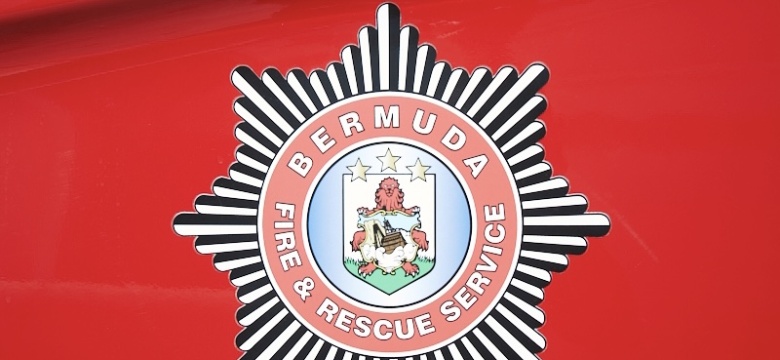Bermuda Fire & Rescue Service Launches Fire Safety Awareness Week with Focus on Lithium-Ion Battery Risks

The Bermuda Fire & Rescue Service (BFRS) will observe Fire Safety Awareness Week from 6–11 October 2025, highlighting the growing risks of lithium-ion battery fires and providing the community with practical fire prevention advice.
Minister of National Security, the Hon. Michael Weeks, JP, MP, said: “Fire prevention starts at home.
“Every household should make safety a daily habit, whether it is checking your smoke alarms, charging devices responsibly, or simply talking with family about what to do in an emergency. A few moments of preparation can save lives.”
Minister Weeks continued: “This year we are particularly mindful of the risks that lithium-ion batteries bring. They are part of our everyday lives, but when handled incorrectly, they can be dangerous.
“I encourage the public to take advantage of the advice being shared this week to protect themselves and their loved ones.”
Details relating to the safe disposal of lithium-ion batteries at the Tynes Bay public drop-off will be released to the public at a later date.
The public is encouraged to show their support for Fire Safety Awareness Week by lining the streets of Hamilton at 11:45 a.m. on Monday.
A convoy of fire vehicles will depart the Hamilton Fire Station and make its way through the city, travelling along Reid Street, then Queen Street, before heading down Church Street and returning to the station.
The BFRS is working in coordination with the National Fire Protection Association®️ (NFPA®️), which has launched a new campaign, “Charge into Fire Safety”, in response to the increasing number of fires caused by lithium-ion batteries.
These batteries are found in micromobility devices such as e-bikes and e-scooters, smaller electronics such as cell phones and laptops, and electric vehicles. As the use of these items has increased in recent years, so too has the number of related fires.
“The BFRS encourages residents to learn more about the hazards of lithium-ion batteries,” said Jamal Albuoy, Divisional Officer of Fire Prevention Division at the BFRS.
“By better understanding how lithium-ion battery fires start, people can take the necessary steps to minimise associated risks and safely use their electronics and other devices powered by these batteries.”
Lorraine Carli, vice president of Outreach and Advocacy at NFPA, commented: “Lithium-ion batteries are increasingly found in the many devices and systems we use every day.
“With this greater use, however, we are seeing an uptick in related fires, prompting people to contact us frequently with questions about battery safety.
“In response, NFPA created the ‘Charge into Fire Safety’ campaign with information that helps answer these questions clearly and thoroughly, in one easy-to-find location."
The NFPA and BFRS recommend these tips when buying, charging, storing, and using lithium-ion batteries to help prevent fires:
- Only purchase and use devices, batteries, and charging equipment listed by a nationally recognised testing lab and labelled accordingly.
- Use charging equipment that is only compatible with your device. To be safe, use only the charging equipment supplied with your device.
- Do not keep charging the device or battery after fully charging.
- Do not put lithium-ion batteries in the trash. Recycling is always the best option. Take the batteries to a battery recycling location or contact your local waste department for disposal instructions.
- Stop using your device if the battery shows signs of damage, such as an unusual odour, excessive heat, popping sounds, swelling, or a change in colour.
- Only have device repairs performed by a qualified professional.
Learn more about the “Charge into Fire Safety” campaign and download free safety tip sheets here.